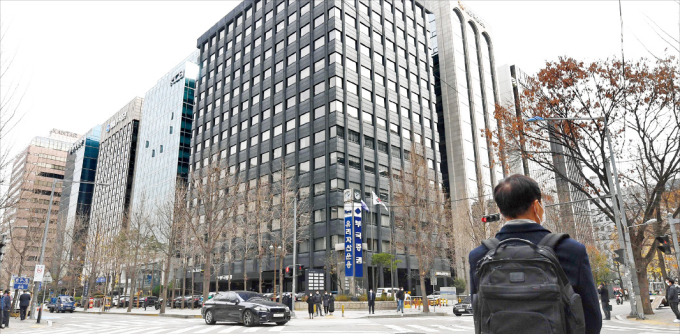Sovereign bonds
KRW bonds favored amid rekindled interest in riskier assets
By Nov 26, 2020 (Gmt+09:00)
2
Min read
Most Read
LG Chem to sell water filter business to Glenwood PE for $692 million


KT&G eyes overseas M&A after rejecting activist fund's offer


Mirae Asset to be named Korea Post’s core real estate fund operator


StockX in merger talks with Naver’s online reseller Kream


Meritz backs half of ex-manager’s $210 mn hedge fund



SINGAPORE -- Global investors are returning to emerging market debt, including Korean won bonds, as they hunt for higher yields amid stronger local currencies versus the greenback.
According to Korean financial companies operating in Singapore, one of Asia’s financial centers, on Nov. 26, global funds tracking emerging market assets have shown increasing interest in Korean bonds, especially sovereign notes.
“We’re noticing a significant increase in queries from investors about the recent yield trend of the Korean bonds,” said a banker in charge of financial products in Singapore.
“Alongside emerging market sovereign bonds, Korean bond yields are attractive compared with US peers and other debt products of advanced nations.”
He said some global investors are looking to emerging market debt, betting on the prospects of currency gains on top of higher yields on local bonds.
Despite repeated warnings from authorities, the Korean won has rallied against the dollar toward its strongest level since 2018 on expectations that the US Fed will maintain its easing stance under the Joe Biden presidency to support the US economy.
Some analysts expect the dollar to fall by as much as 20% next year against the currencies of its main trading partners. That would provide a huge underpinning for emerging market assets.

STRONGER WON WHETS APPETITE FOR CURRENCY GAINS
In Seoul’s foreign exchange market, the Korean currency strengthened to 1,108 won per dollar on Wednesday from 1,200 won in early July, largely due to steady flows of foreign funds into the local stock market.
Foreign passive funds tracking major players on the Korean bourse have pushed the benchmark Kospi index to record-high levels. Foreign investors bought Korean shares for the 15 consecutive days before selling a net 135 billion won on Wednesday.
Emerging market equity funds, which suffered almost uninterrupted outflows from March to September, made a comeback in recent weeks through exchange traded funds (ETFs).
Bonds have also made up lost ground, especially sovereign bonds issued overseas in dollars or other hard currencies.
In early September, the South Korean government issued euro-denominated bonds worth 700 million euros ($827 million) at a negative interest rate, becoming the first non-European country to sell negative-yielding sovereign bonds.
China, which is leading global fund inflows due to its faster-than-expected economic recovery, also issued its first euro bonds with negative yields in mid-November.
Analysts said investors' appetite for risk will continue into next year, with the passing of the US election and progress on COVID-19 vaccines.
“Higher yields considering Korea’s relatively high sovereign rating and the won’s steady gains will continue to attract foreign investors into Korean debt, treasuries in particular, next year,” said Shinyoung Securities analyst Cho Young-koo.
Write to Tae-Ho Lee at thlee@hankyung.com
In-Soo Nam edited this article.
More to Read
-
 Debt financingKookmin Bank raises $700 mn in forex bonds amid strong demand
Debt financingKookmin Bank raises $700 mn in forex bonds amid strong demandApr 30, 2025 (Gmt+09:00)
-
 Real estateColliers to lead $689 million sale of IGIS Asset-owned Signature Tower
Real estateColliers to lead $689 million sale of IGIS Asset-owned Signature TowerApr 11, 2025 (Gmt+09:00)
-
 Real estateIGIS taps Samjong KPMG, Cushman & Wakefiel, NAI for sale of AP Tower
Real estateIGIS taps Samjong KPMG, Cushman & Wakefiel, NAI for sale of AP TowerApr 11, 2025 (Gmt+09:00)
-
 Travel & LeisureSoftBank-backed Yanolja raises stake in Modetour as No. 2 shareholder
Travel & LeisureSoftBank-backed Yanolja raises stake in Modetour as No. 2 shareholderMar 27, 2025 (Gmt+09:00)
-
 Private equityMBK Special Situations relinquishes Korean investment advisory license
Private equityMBK Special Situations relinquishes Korean investment advisory licenseMar 21, 2025 (Gmt+09:00)
Comment 0
LOG IN


